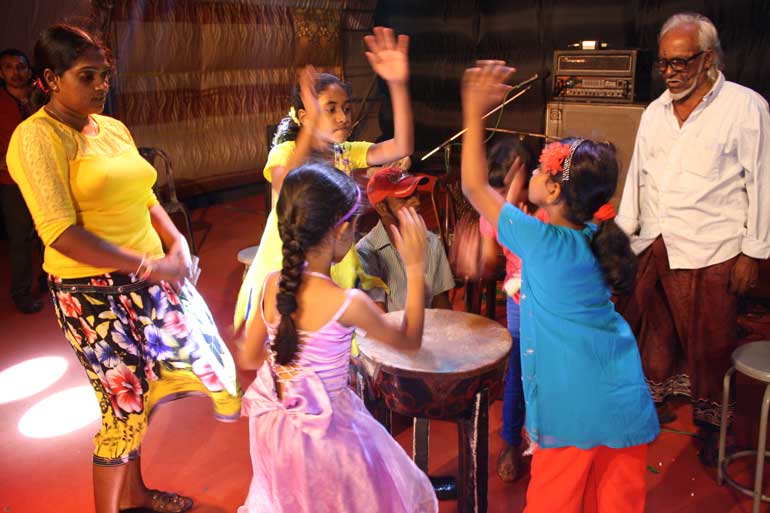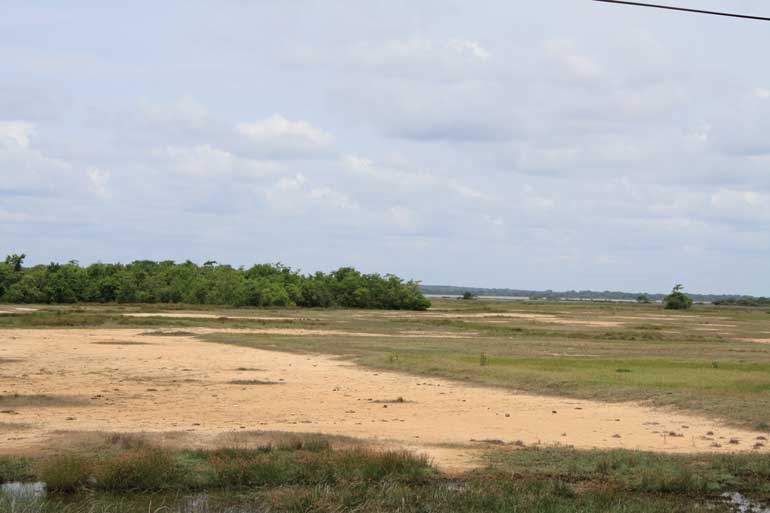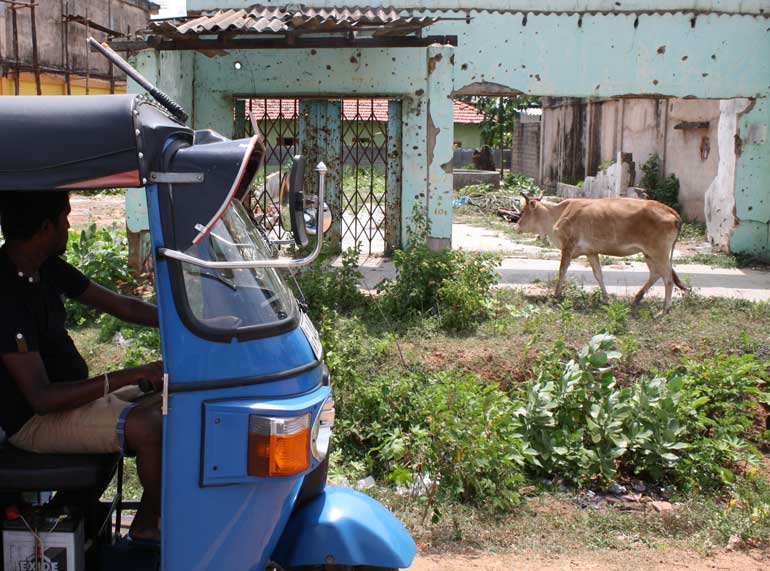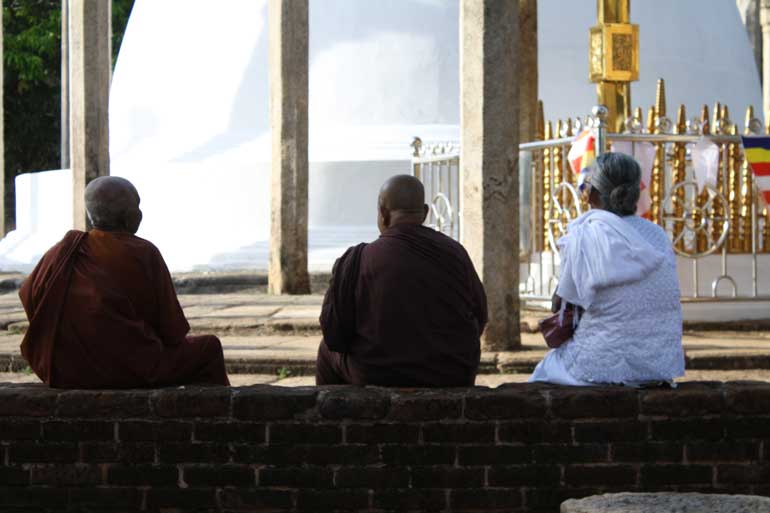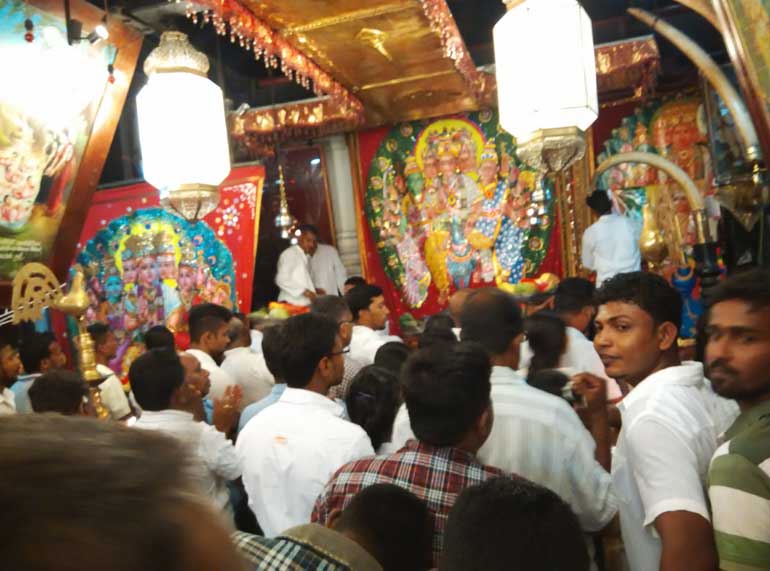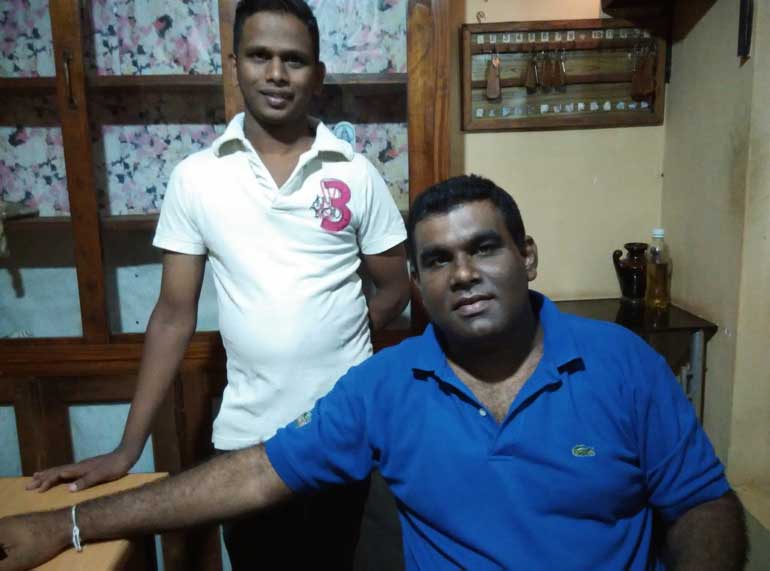Monday Feb 16, 2026
Monday Feb 16, 2026
Saturday, 18 July 2015 00:00 - - {{hitsCtrl.values.hits}}
By Sachin Bhandary
Our trishaw was cruising on a flat land with a lagoon running parallel to the left. Even without intending to, I would have sounded excited to Shiva (name changed). ‘Where is it?’ I asked.
‘Ovah they-aah’ replied Shiva in his unmistakably Tamil accent. He was now pointing towards bushes in the lagoon. The spot was at least 200 metres from where we were. Shiva was clearly uncomfortable. Even the mention of walking towards the spot changed the demeanor of this otherwise smiling young man.
This nondescript spot in the lagoon is famous for a reason and one reason alone. This is where LTTE leader Prabhakaran’s dead body was reported to have been found floating. This is where the three-decade bloody war in Sri Lanka had finally come to an end.
Almost as an afterthought Shiva tells me ‘Army say Prabhakaran dead, but who knows’.
By then I was well aware of the ridiculous theories that Prabhakaran was still alive and would resurface at an opportune time. But to dig a little deeper, I asked, “Okay, let’s assume Prabhakaran is alive and he returns. What do you expect Prabhakaran to do?”
The answer is almost immediate. “He has to find a political solution. We can’t do one more war, no?” says Shiva, with a hand gesture that is typically his.
That to me underlines the biggest positive in this country which has seen way too much violence in the last three decades.
It would be naïve to believe that Tamils, especially in the north, have no grievances. Neither is the Sinhalese majority completely at ease with the separatist rhetoric of the TNA (Tamil National Alliance – representatives of Tamils from the north). But unlike the ’80s, there is a common ground across all communities and all regions of this otherwise divided island. The common ground is ‘nobody wants the war’.
In the Jaffna peninsula and the other areas of the north, the war was brutal. But the LTTE also took the war to the heart of the Sinhala country, into the capital – Colombo. Almost everyone I met had a few war anecdotes to narrate.
It was even more intense in the north, everyone knew someone who was either killed or had disappeared during the war. Even as northern towns like Jaffna, Vavuniya, Kilinochchi and Mullaitivu try to dust off horrible memories, some stains remain. So it is logical that people from this region never want to experience the horror again.
‘Say No To Destruction. Never Ever Again’ reads a board on Point Pedro road on the way out of Jaffna. It looks like the echo of the feelings of a wounded people.
But what about the south where the war hardly made a difference to daily lives? People here are mostly Sinhalese Buddhists and if international media reports are anything to go by, there seems to be a rise in Buddhist extremism.
My travels took me to the south as well. Thankfully, it was not the Bodu Bala Sena’s aggression but the Buddha’s pacifism that people represented. Most people thought it was unfortunate that the country had to go through the war. For many it is also futile because Sinhalese and Tamil people in the south do not have differences. Kataragama, the sacred city in the south, is served by Sinhalese and Tamils in equal measure.
“Whatever may be the issue, we must discuss and sort it out. Sri Lanka must treat all people equally. That is how we will grow, no?” says Pradeep, who owns a small lodge in Kataragama.
That the elite would be against jingoism and hence not want the war is expected (although there are exceptions to that stereotype in Sri Lanka, like anywhere else in the world). People like Pradeep reassured my quest for positive stories from the country. Hardworking people of this island want to put the war behind and build a new country. To do that, they understand, they need to walk together.
“I am Sri Lankan,” said a young man with a chuckle. This was at Sri Lanka’s national broadcaster’s office when I asked him whether he was Buddhist or Tamil. Most people across the country agree that violence should not have any place in Sri Lankan society. It’s not just war but the violence of corruption and power grabbing that most people find disgusting as well.
This, in my opinion, is a great common ground for Sri Lanka to start building a truly inclusive society. A country in which meritocracy precedes ethnicity and religion. It does seem like Sri Lanka is moving in the right direction. It might be taking baby steps, but even those need to be celebrated.
Nobody wants the war; this is a lesson that Sri Lanka has learnt well. It is heartbreaking that it had to learn it in such a hard way.
(This is the second in a series of 12 positive stories on Sri Lanka by Sachin Bhandary. Sachin quit a successful, decade-long career in public relations to pursue ‘The 12 Project’. It involves him travelling to 12 countries and taking a monthly challenge in each one. He recently travelled through Sri Lanka to write positive stories about the country and believes that Sri Lanka has unfortunately been suffering from the war stereotype for way too long. He believes travelling is the best way to learn and wants to encourage more people to take trips with a purpose. When not busy with keeping himself alive, Sachin shares his experiences through these platforms: website – www.theoddtraveller.in; Facebook – https://www.facebook.com/pages/The-Odd-Traveller/777044725674620; Twitter – @theoddtraveller; Instagram – @theoddtraveller. Follow him, he promises to take us on an interesting ride!)
